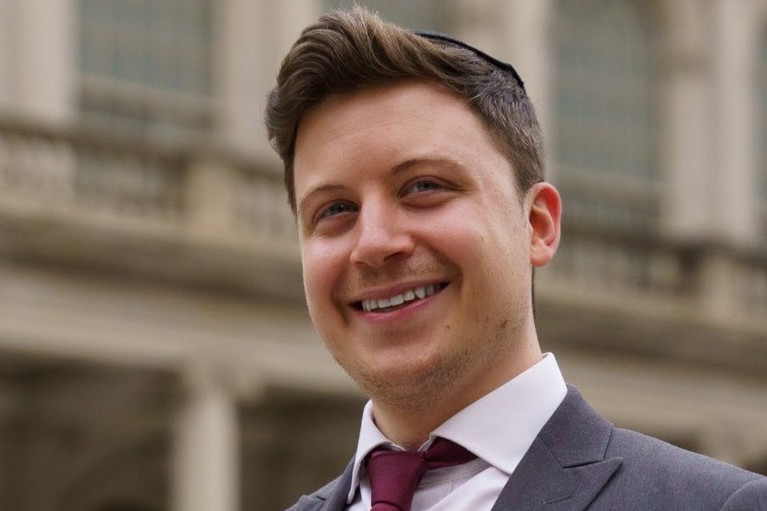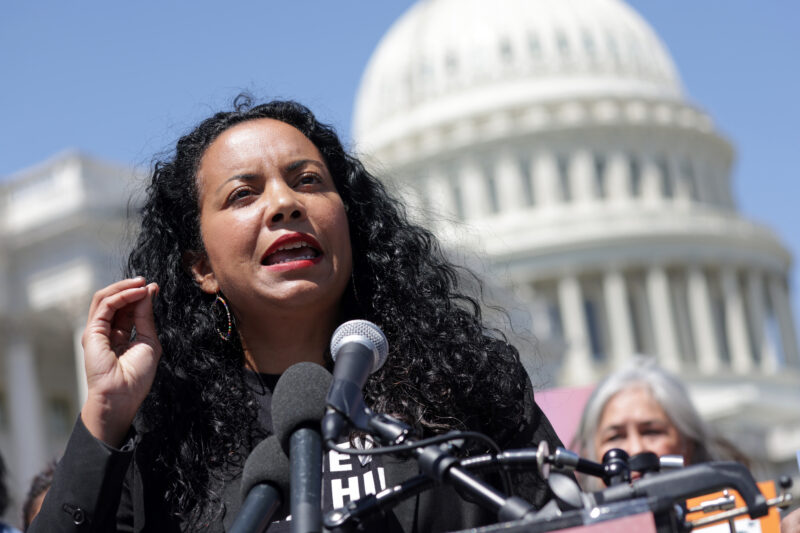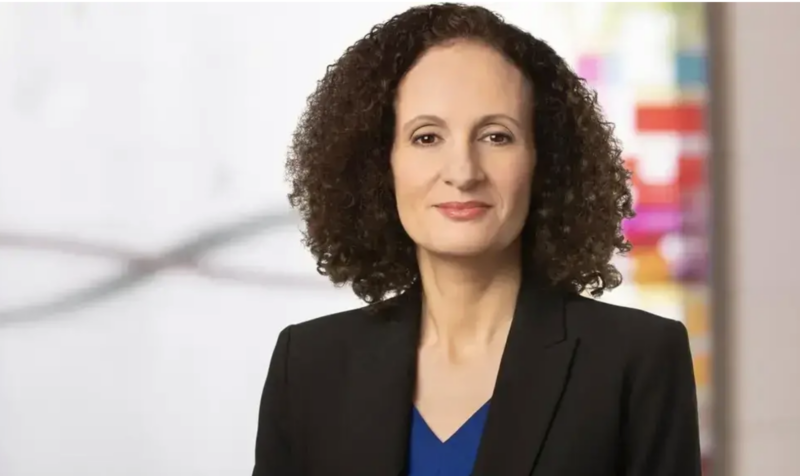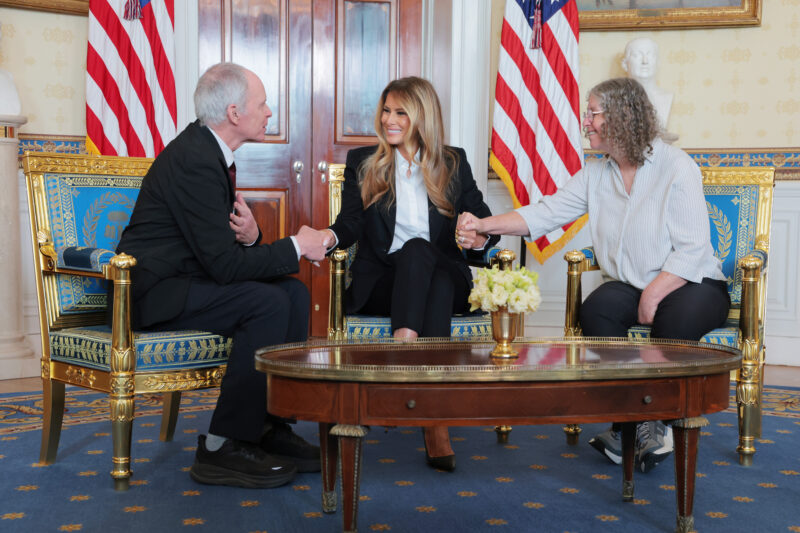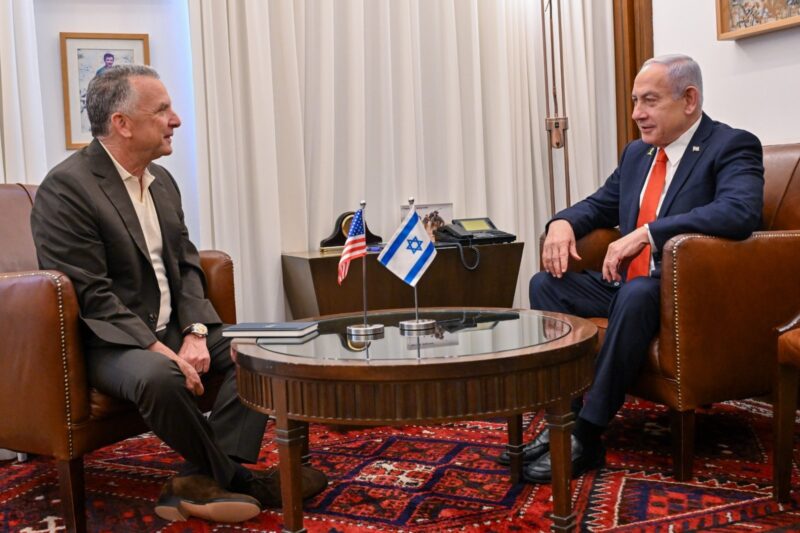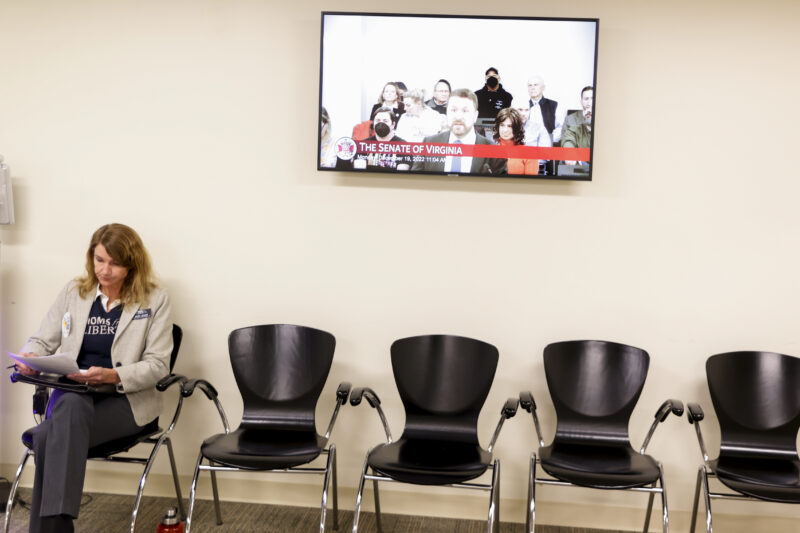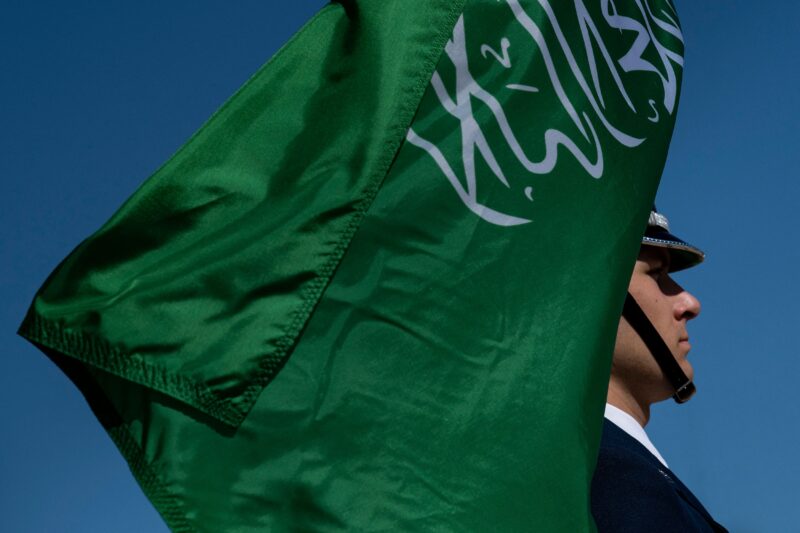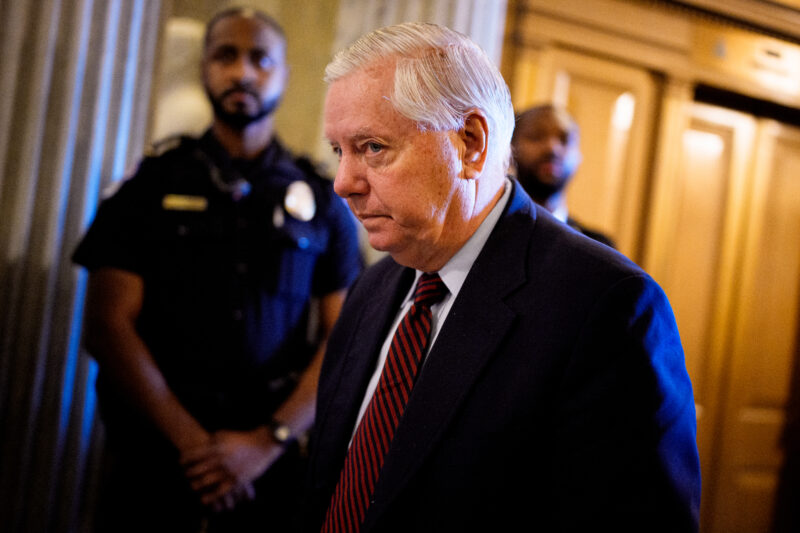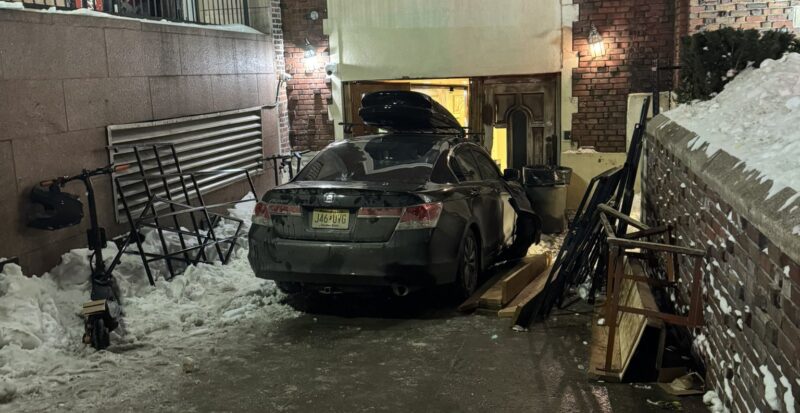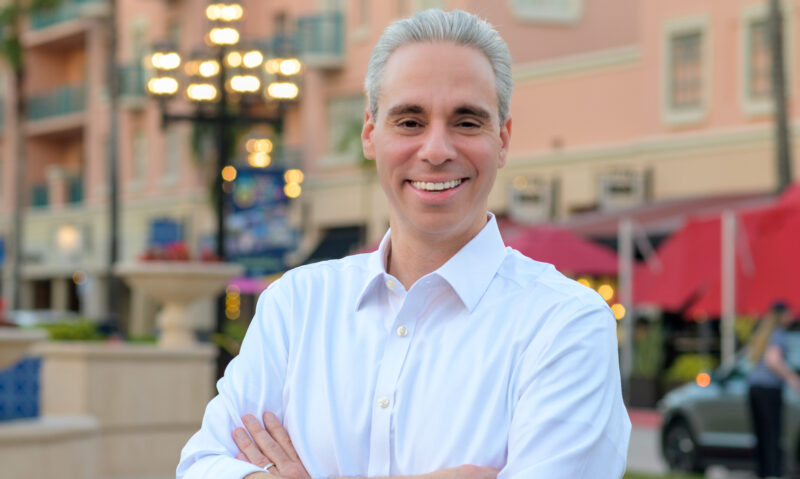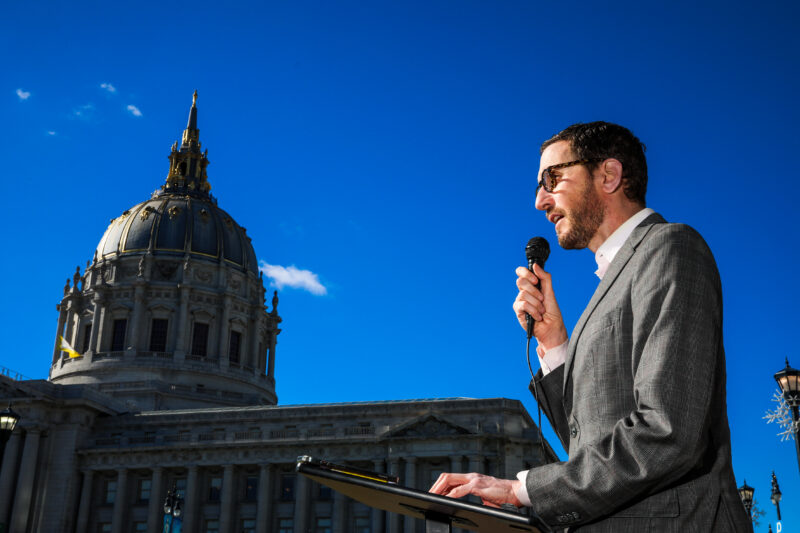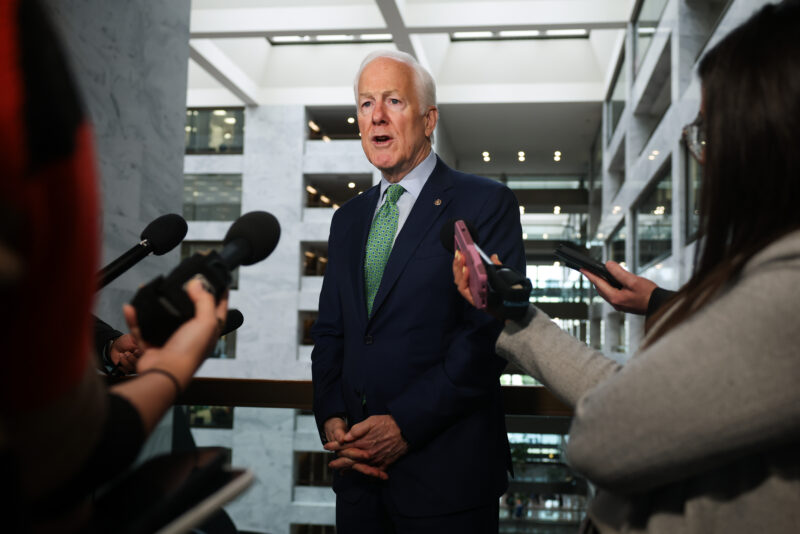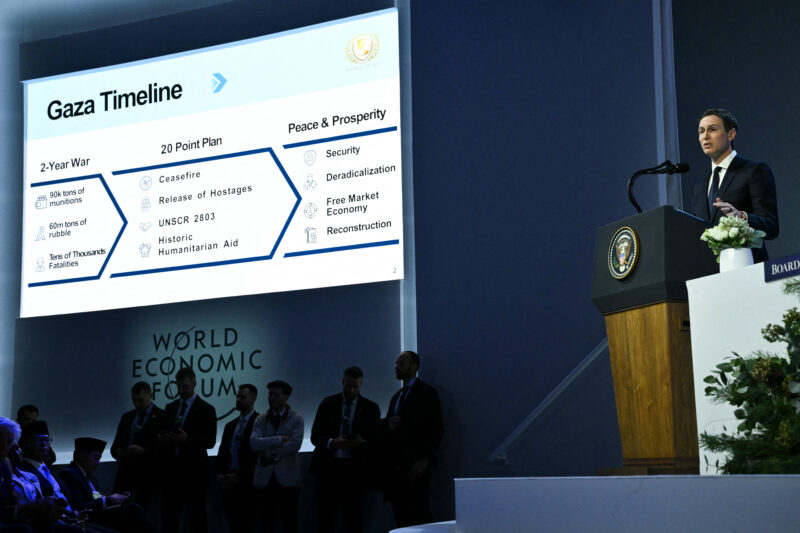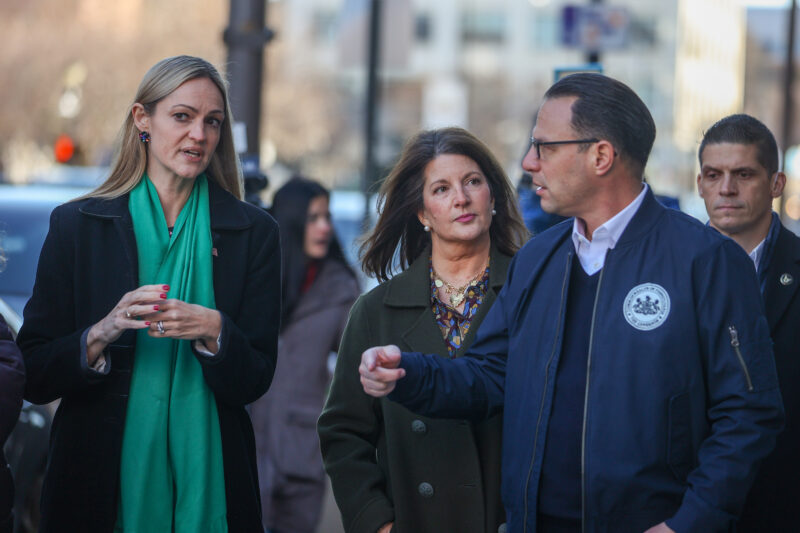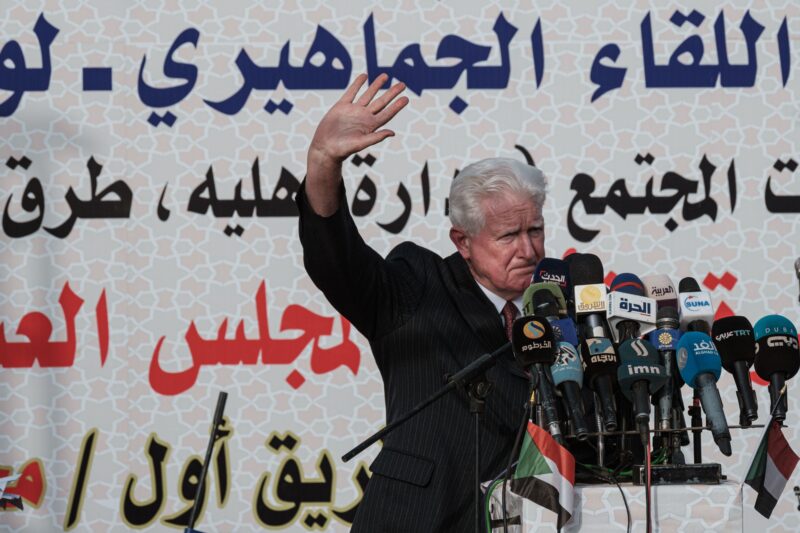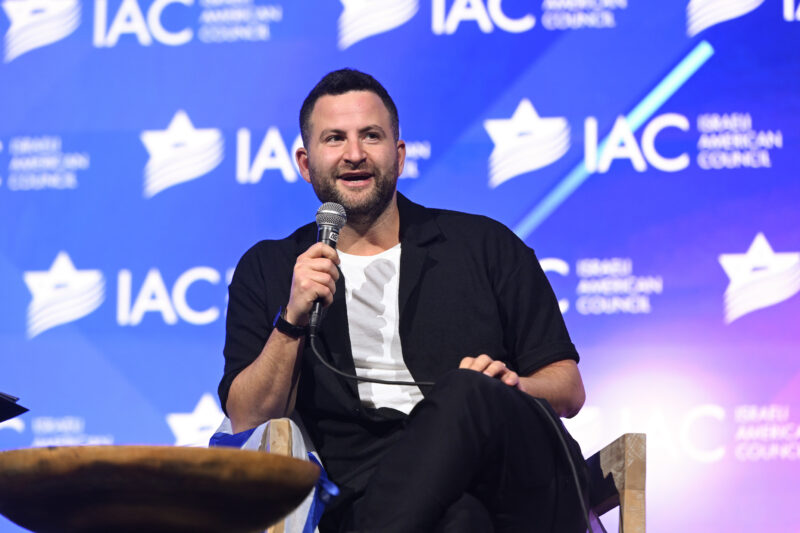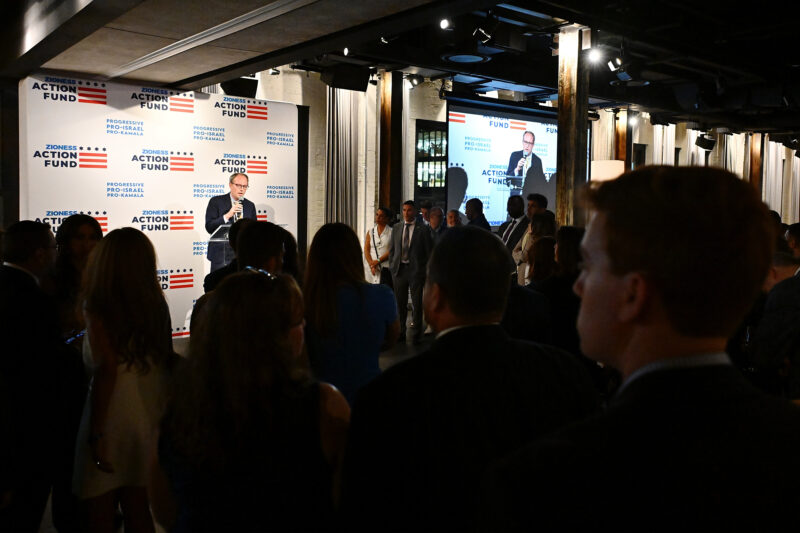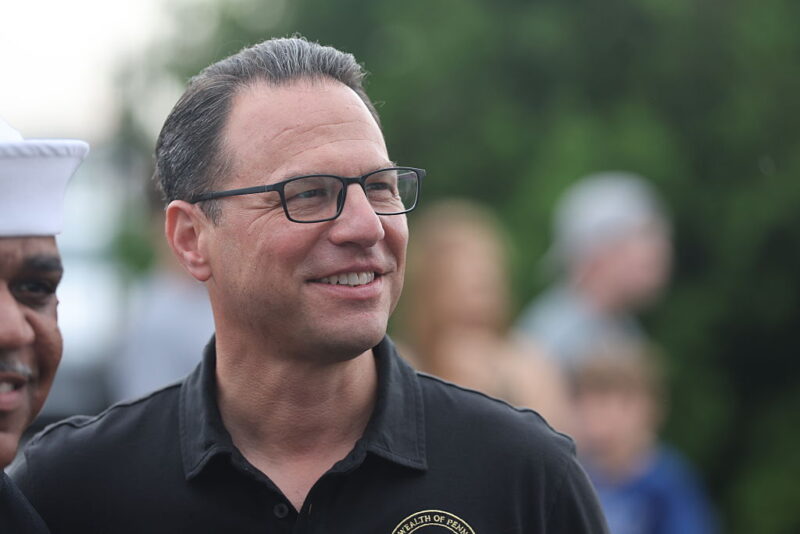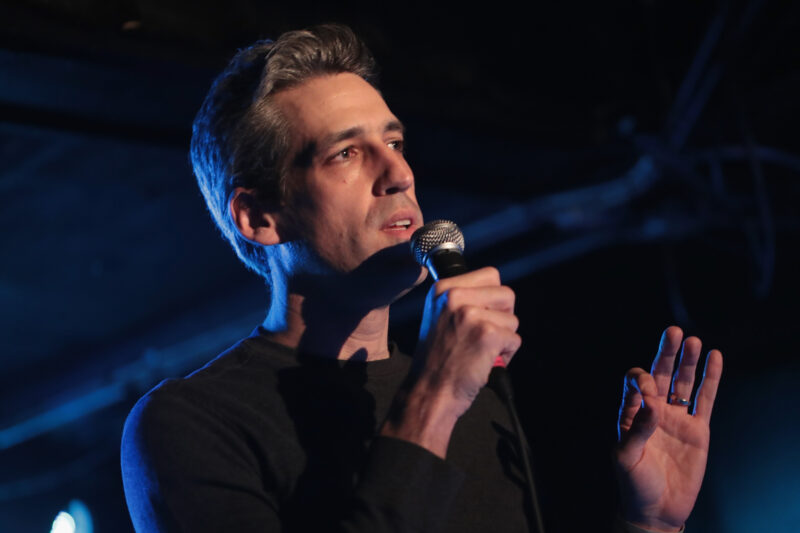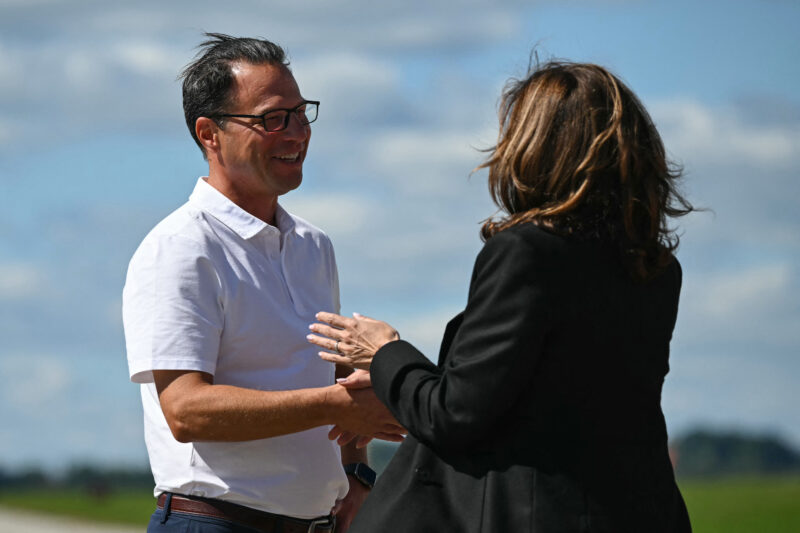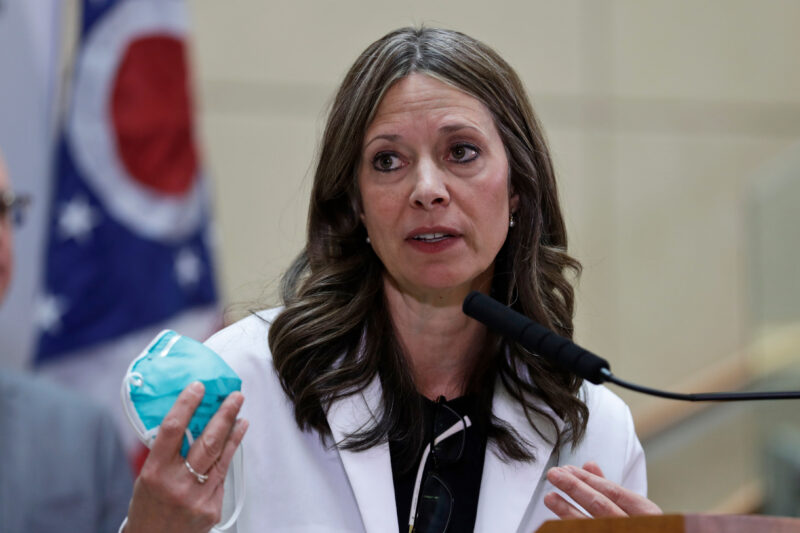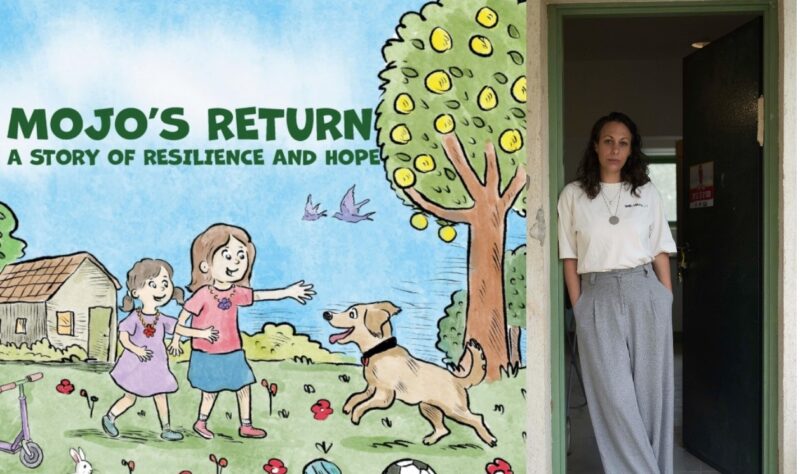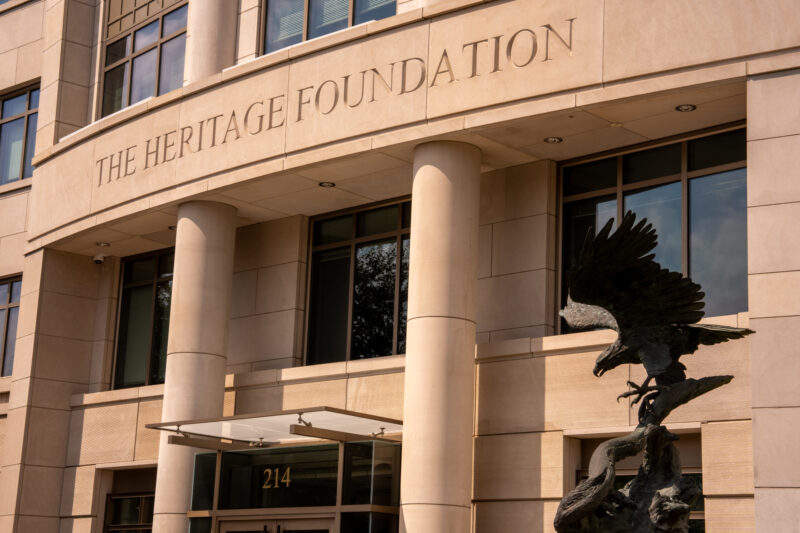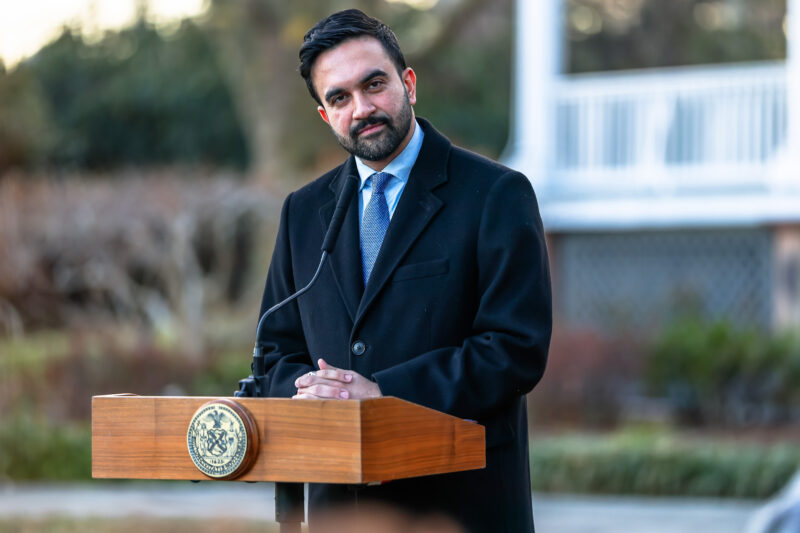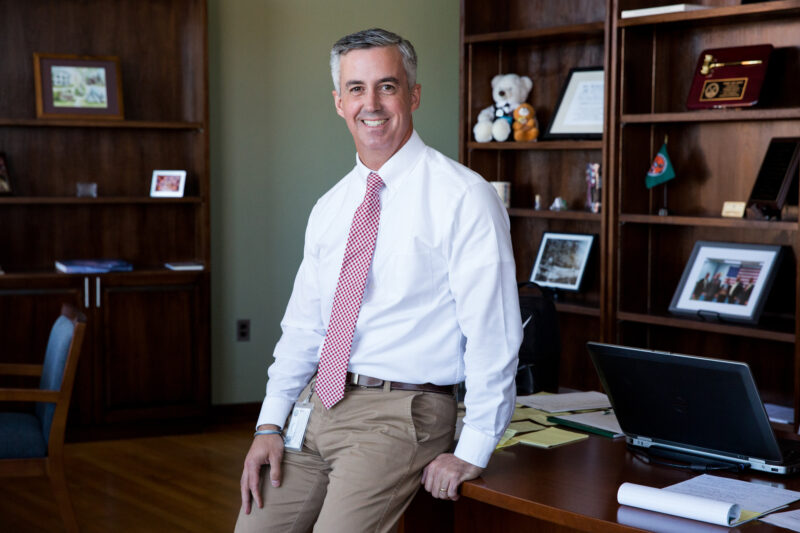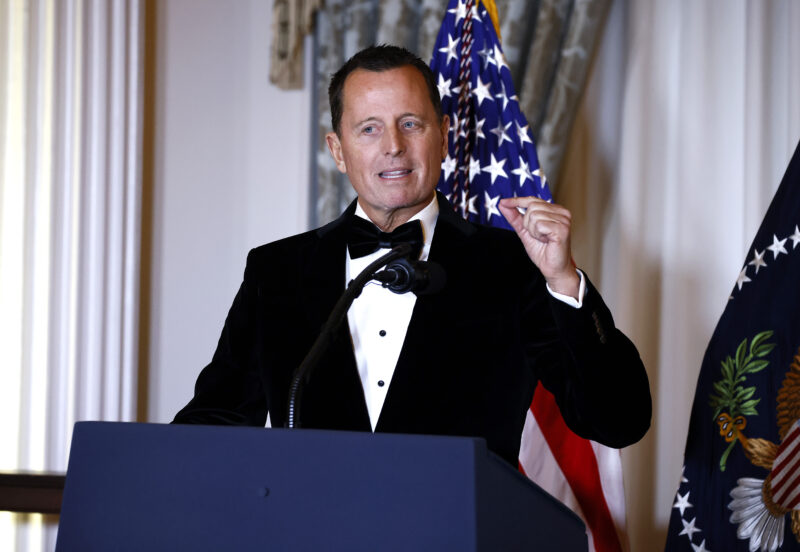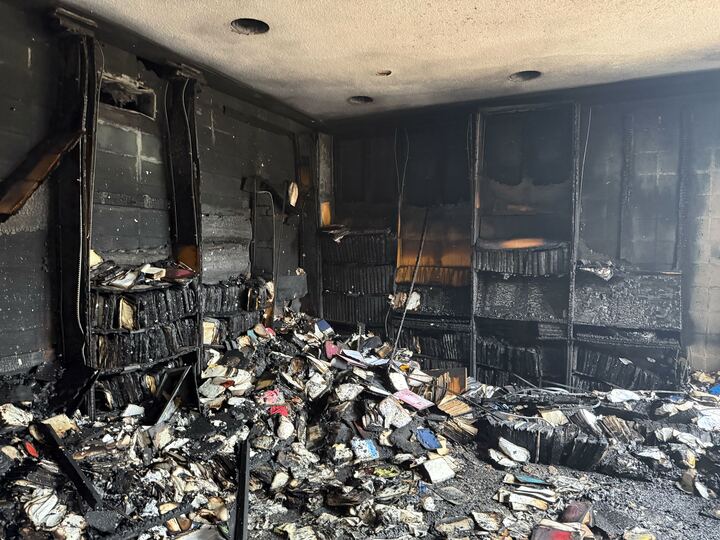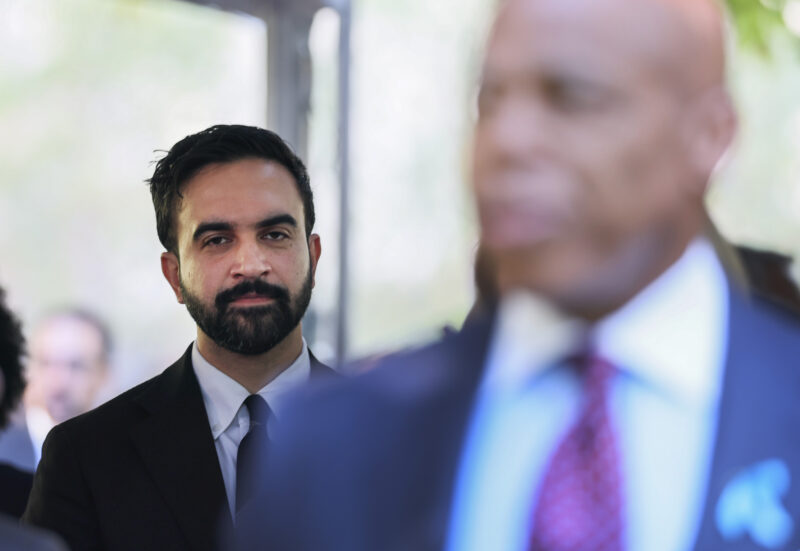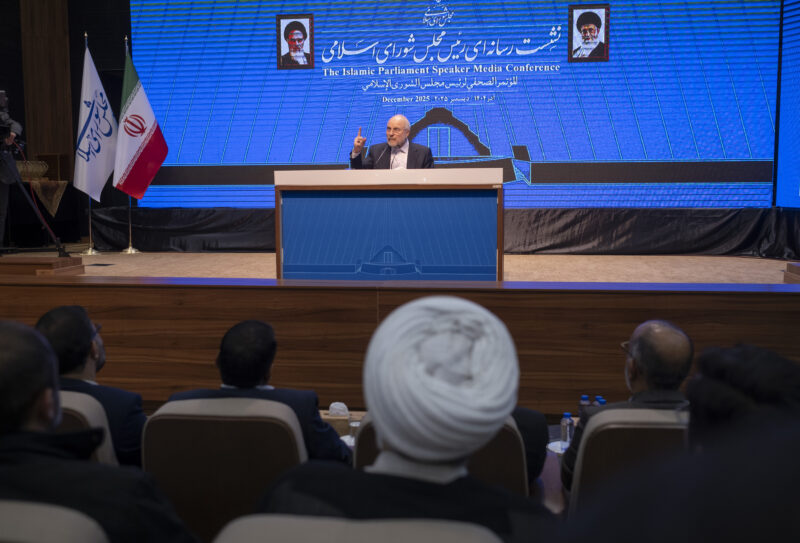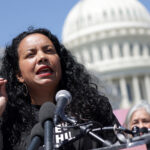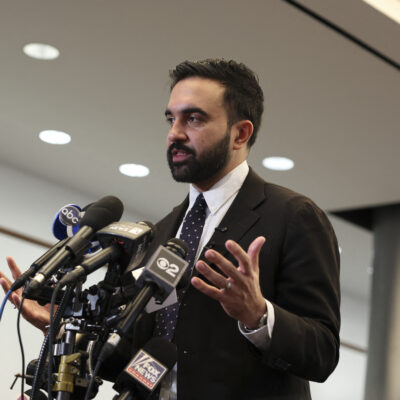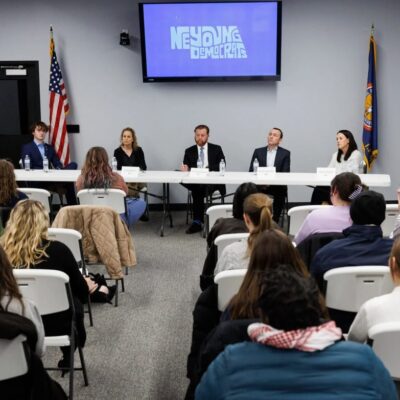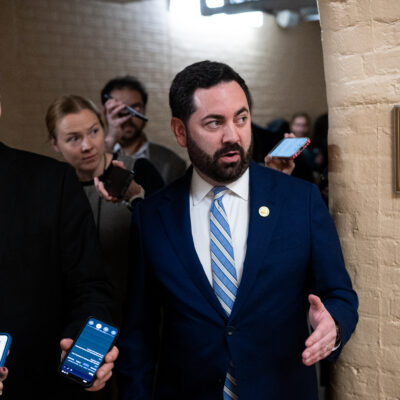Under half of nonprofit security grant applications funded in 2024, despite additional funding
Total funding requests went up to nearly $1 billion this year, highlighting the increased needs for security funding following the Oct. 7 attack on Israel.

Emil Lippe/Getty Images
A Colleyville Police officer is parked in Good Shepherd Catholic Community church on January 15, 2022, in Colleyville, Texas, as police respond reports of a man with a gun was holding hostages at the nearby synagogue.
Forty-three percent of applications for Nonprofit Security Grant Program funding were fulfilled in the 2024 grant cycle, in spite of an injection of additional funding from the national security supplemental bill passed earlier this year.
The NSGP, which provides funding for religious institutions and nonprofits to supplement their security, received 7,584 applications this cycle, 3,288 of which were approved, a Federal Emergency Management Agency spokesperson told JI. The program ultimately allocated $454.5 million in funding this year, with $973 million in total funding requested. Funding grants were announced on Monday.
Despite the larger pool of funding available for 2024 than in 2023, the acceptance rate increased only slightly this year in light of a significant increase in requests — total requests went up by 2,300 and nearly $300 million more funding was requested this year.
Congress had provided $274.5 million for the program through regular appropriations for 2024, a cut of more than $30 million from the year prior. But that funding was supplemented by an additional $400 million in the national security supplemental bill, around half of which was allocated during this year’s grant cycle, leaving $220 million for future use.
A significant majority of grant recipients (71%) were applying for the first time and 63% of applications came from religious institutions. Thirty-seven percent of grant recipients were Jewish institutions.
“With all forms of bigotry, like antisemitism, on the rise, it has never been more important to make sure that those gathering in houses of worship, dropping their kids off at shul, and visiting their local JCC or any other faith-based community center are protected from any harm,” Senate Majority Leader Chuck Schumer (D-NY), who has been a key advocate for additional NSGP funding, particularly in the supplemental, told Jewish Insider.
“Federal security programs like NSGP form the cornerstone of effective preparedness against terror threats and hate crimes. That’s why I’m so proud that I increased the federal pot of these funds and that New York is receiving the lion’s share of these resources, which will go a long way towards protecting all New Yorkers and all Americans,” Schumer continued. “But our work is far from over: we must continue to advocate for more dollars until all the need is met, and we must confront head-on the poisonous prejudice and ignorance that motivates these attacks.”
Sen. Jacky Rosen (D-NV) the co-chair of the Senate’s antisemitism task force, linked her support for the NSGP to her own past as a synagogue president.
“I am proud to have helped secure higher funding for the program through the last few annual funding packages and the national security supplemental,” Rosen said. “That being said, with rising antisemitism across the United States, we need to do more to keep Jewish community institutions safe from violence. I’ll keep pushing for additional funding to be included in the final appropriations bill for this year.”
Lawmakers and Jewish groups have been pushing for increased funding for the program in 2025, citing the significant increase in threats post-Oct. 7, but it’s unclear if that will materialize.
In its version of the 2025 Homeland Security funding bill, the House approved $335 million for the program — which Jewish groups say is less than is needed. The Senate has yet to release its draft of the funding bill.
A majority of Senate Democrats have said they support $400 million in funding for the program in the 2025 appropriations bill, while some Jewish groups are pushing for $500 million.
Karen Paikin Barall, the vice president of government relations at the Jewish Federations of North America, told JI that it’s “good news” that acceptance rates increased compared to last year, but the acceptance rate shows current funding “is not nearly enough.”
“There’s all this extra funding [but] it’s nothing compared to what we need, with the amount of institutions that need protecting,” Barall said. “We’re all targets now… everybody needs security.”
She directly linked the increased demand to the post-Oct. 7 environment.
Nathan Diament, the executive director of public policy at the Orthodox Union, said that the funding results show “how challenging the current security environment is and how critical this program is.”
“We need to — and are — pressing to have the [fiscal year 2025] allocation keep pace with the needs of the American faith community,” Diament continued.
Anti-Defamation League CEO Jonathan Greenblatt praised Congress for the record-high level of funding provided in this year’s funding cycle.
“As our data shows, we are experiencing an unprecedented surge of antisemitism in the U.S. which threatens both our institutions and our places of worship and, unfortunately, the demand for security resources currently far outstrips available resources,” Greenblatt said. “The federal grant program remains critical to protecting the Jewish community, our institutions, and other at-risk groups. We continue to call on Congress to increase funding to ensure the Jewish community — and all vulnerable communities — are able to adequately protect themselves from growing threats.”
The FEMA spokesperson said that the remaining $220 million in funding from the national security supplemental bill will be made available through a separate application process to be announced in the coming months.
Barall said that JFNA has been pushing FEMA to make the funding available through a special application cycle before the end of the year, before the application cycle for 2025 grants. She said there have been discussions about another application period in October, although she emphasized the need to provide Jewish institutions sufficient time to apply around the Jewish holidays, when many will be unable to work on applications.
Barall said that a record number of Jewish summer camps received funding in 2024. She also praised the high level of first-time applicants receiving funding, which she said included a large number of smaller institutions.
In the past, many smaller institutions have been unaware of the program or lacked the resources and expertise to submit applications.
According to data provided by Schumer’s office, $42.6 million of the funding was provided to 289 institutions in New York —10% of the total grants issued. The majority ($34.2 million) went to areas in and around New York City, $29.4 million of that in New York City itself.
The program received applications this year from every state and eligible territory in the country.
Barall also noted that the recent death of Rep. Bill Pascrell (D-NJ), a leading advocate for the NSGP in the House, could impact the upcoming funding cycle, although she said that multiple other lawmakers have volunteered to fill the role — an unusual situation, according to Barall — and are working with Jewish groups on the path forward.
CORRECTION: A previous version of this article stated that 37% of religious institutions receiving grants were Jewish institutions. In fact, 37% of all grant recipients were Jewish institutions, according to a FEMA spokesperson.
Please log in if you already have a subscription, or subscribe to access the latest updates.






